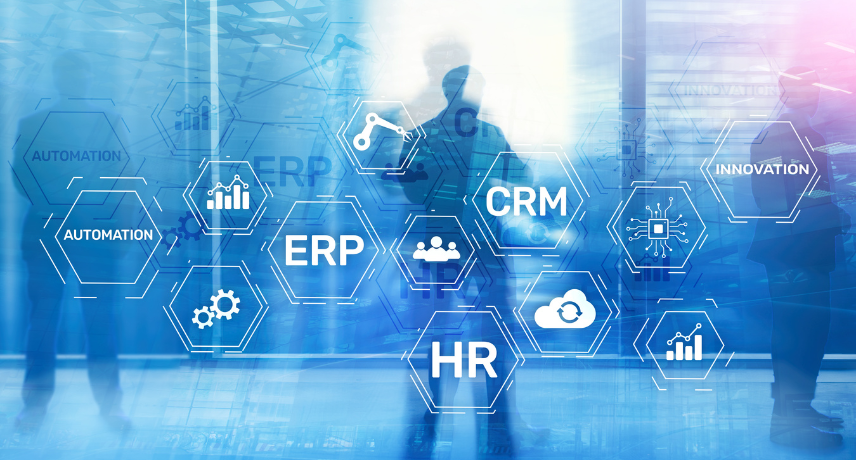
Enquiry Form
ERP Software for Retail & E-commerce: A Winning Combination
Retail and e-commerce are highly competitive industries where businesses are seeking new and unique ways to be more efficient, minimize costs, and offer outstanding customer experiences. The implementation of ERP software solutions in retail and e-commerce is one of the most efficient practices to meet these objectives. ERP solutions assist companies in the streamlining of processes and better decision-making, as well as keeping up with the changes in the fast-developing market in general by centralizing business operations.
This article will introduce why ERP software can revolutionize retailers and e-commerce businesses, the essence of its advantages, and the main features to consider.
1. Why ERP Software Is Important in Retail and E-commerce
Retail and e-commerce industries are associated with their own peculiarities: they include changes in inventory, seasonal demand, strong client expectations, and competition. Sales, stock, and supplier records and customer records may turn into chaos without an integrated system.
ERP software enables various business processes to be implemented together on a single platform, including inventory, order management, customer relationship, and accounting. This prevents data silos and makes all the departments run on real-time and accurate information.
2. Advantages of ERP Software in Retail & E-commerce
a. Centralized Operations
An ERP solution lets you integrate all your fundamental business processes into a single platform. Running a physical retail store, an online store, or both, you can track operations, control data, and make professional decisions without the need to switch between tools.
b. better inventory management.
Excess and out-of-stocks will ruin profitability and consumer trust. Inventory management under ERP will also help in informing businesses to maintain inventory levels at present, reorder, and eventually forecast demand.
c. Improved Customer Experience
Customers in the modern days demand faster delivery, order tracking, and personal service. The advantage of having an ERP solution allows them to store customer information, history of purchases, and loyalty programs.
d. Real-Time Data Insights
Retailers will have access to current sales, inventory, and financial information with the integrated reporting and analytics. This permits smarter decision-making and faster reaction to market trends.
e. Cost Efficiency
Automation is time-saving and cost-saving; it replaces manual work, it minimizes errors, and it speeds up procedures.
3. ERP Software Retail and E-commerce Key Features
When selecting the ERP software to use in your business, look out for the following key elements:
1. Integration of Multi-Channel Sales
An ERP solution must be easily integrated with other sales platforms such as physical shops and online websites, as well as sales channels such as Amazon, Twitch, or Shopify. This makes all the sales data synchronized in real time.
2. Warehouse & Inventory Management
Using multiple warehouses, tracking of products, and automated replenishment of stocks is essential in retail and online stores.
3. Order & Shipping Management
An efficient ERP system integrates with logistics providers, automates shipping labels, and shows customers live order tracking updates.
4. CRM Integration
The customer information must be retained and available to use in marketing campaigns, after-sales services, and personalized suggestions.
5. Financial & Accounting Tools
Integration of automated invoicing, expense tracking, and financial reporting are important parts of an effective ERP system.
4. How ERP Is Changing Retail and E-commerce Business
Streamlined Workflow
Instead of having a variety of systems to balance sales, inventory, accounts, and customer service, the ERP software system allows them to combine these functions into a singular working process.
Data-Driven Decisions
Real-time analytics allows managers to know what sells the most, set correct pricing policies, and anticipate demand more accurately.
Scalability
An ERP system will grow with you whether you operate a small e-commerce store or a giant retail chain. You can increase the number of users, stores, or online channels without hindering the operations.
Compliance & Security
The modern ERP software has tax regulation compliance functions and safe payment processing options that secure your business and your clients.
5. Selecting the appropriate ERP
These are the factors to consider when choosing ERP software in retail and e-commerce:
· Specific features of the industry adapted to retail sales and online sales
· Remote management through the cloud-based accessibility
· Scalability to pricing plans that match your growth strategy
· Marketplace, POS integrations, and payment gateway third-party integrations
· Effective training and vendor resources
The most popular ones are SAP Business One, Oracle NetSuite, Microsoft Dynamics 365, and niche tools such as Odoo or Lightspeed.
6. Future of ERP in retail and e-commerce
ERP software will get smarter with the emergence of AI, machine learning, and automation. You can expect demand prediction, automated marketing, and advanced personalization to be established as the norm. An early adoption of ERP by businesses will provide them with a competitive advantage in customer satisfaction, operational efficiency, and profitability.
Conclusion:
Efficiency is key in retailing and e-commerce due to their competitive environment. The transparent ERP software will help facilitate the combination of operations and decision-making and the customer experience. ERP systems offer all the tools required to compete in an online-first economy, including inventory management, multi-channel sales, and more.
ERP software is a must if you want to run a profitable retail or e-commerce firm while maintaining control over your operations and their growth.